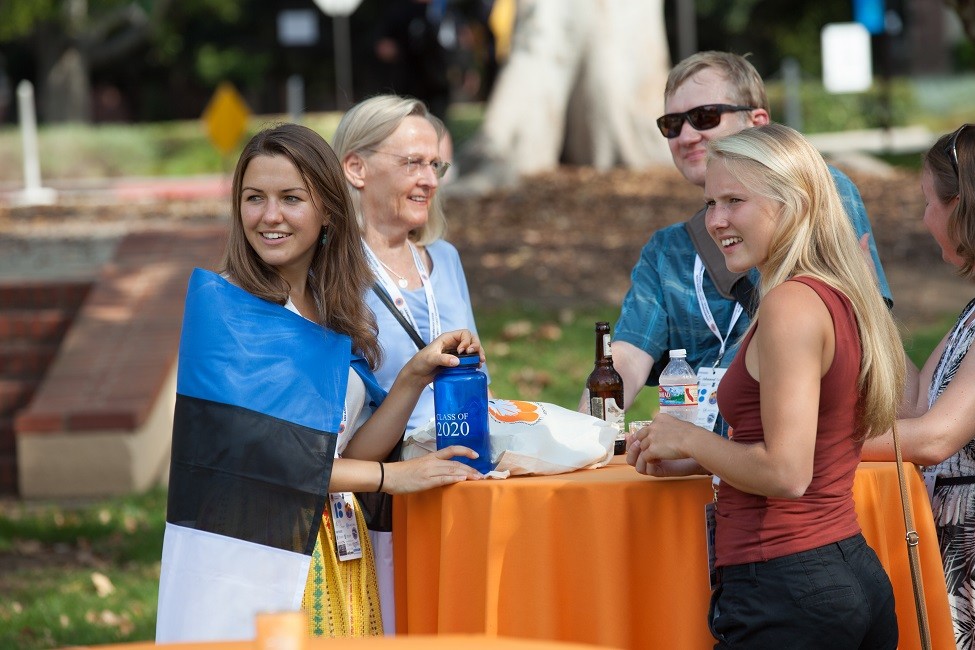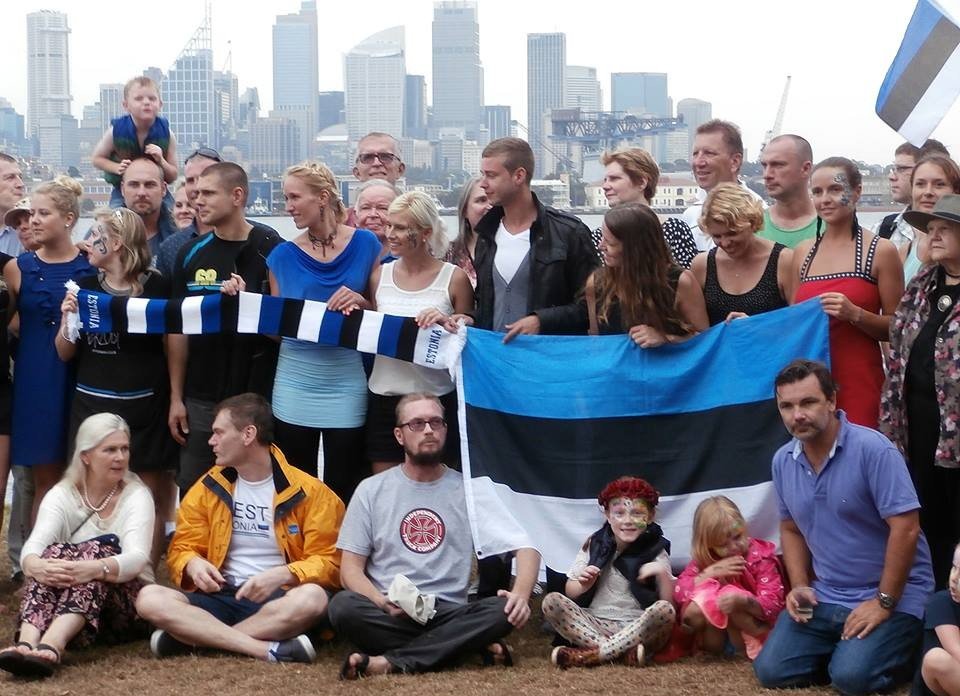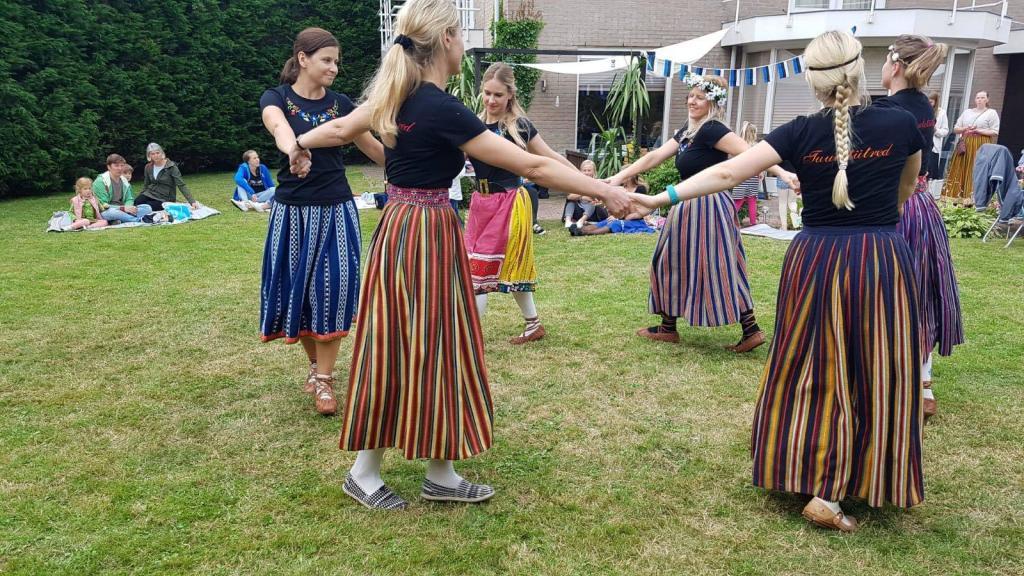Estonians, especially diaspora, are inclined towards clan mentality – but they do not fit the strict definition of a clan; so, why is this so?
Although maybe more accurately described in terms of a tribe, the Estonian diaspora are rather clearly inclined to clan mentality. There is a difference between the two – a tribe and a clan. In the social structure hierarchy, a tribe is a people that share a culture and dialect. Whereas, a clan is a smaller subset of tribe, often defined as a group of people with a common ancestor.
In other words, a tribe is to all maniacal sociopaths as a clan is to the Manson Family. And, Estonians act more like the Mansons.
Wait, that didn’t come out right. Let’s looks at it another way: a tribe is to equines as a clan is to asses. And Estonians behave more like asses… drat, I did it again. Ok, enough botched similes, I should quit when I’m a behind.
The Estonian diaspora behaves as a clan
The point is though, the Estonian diaspora behave as a clan.
Why, for instance, was I checking my smartphone a few years ago to see how Kaia Kanepi (an Estonian tennis player – editor) was faring against Serena Williams in the US Open? I’m not much the tennis fan, at least as a spectator (too much grunting).
How, for example, while camping in a remote area of Vermont did my family run into and befriend maybe the only Estonian within a hundred-mile radius. Some twisted GPS system? “OK, Google, directions to the nearest expatriate Esto.”

What, for heaven’s sake, could possibly be the attraction of visiting Estonians during Christmas to eat jellied pork and blood sausages? Certainly not the nutritional value or culinary texture.
Who, for what’s if worth, is going to even read this article besides other Estonians? Well, at least I’m guaranteed a few social media likes or shares.
This behaviour, like one is encountering a long-lost blood relative, is the essence of the Estonian clan mentality. Our numbers are relatively small, which, of course, explains a lot. As the saying goes, birds of feather flock together. Even if those birds have flown far from the nest.
Estonians share a spirited kinship with the Scots and Irish
Etymologically, the word “clan” is derived from the Latin “planta”, meaning offshoot. From there, most notably, the Gaelic language contains the notion of a “clann”, and Old Irish a “cland”. And, even this makes some sense. Viewed as countries with the most pubs per capita, Estonians share a spirited kinship with the Scots and Irish.
While researching this topic, I found an article, titled, “Clan Mentality: Evidence that Medial Prefrontal Cortex Responds to Close Others”. Smart authors, I’m sure, but the poor grammar of the title smelled suspect (never mind the structurally abhorrent abstract). Still, it was catalogued by the US National Institute of Health and not the Linguistic Society of America, so I presumed some scientific legitimacy. Maybe most of you have read the article several times already. If so, I apologise.
For the rest of us unenlightened dunces, though, apparently, the gist of the article is that brain activity in the prefrontal cortex increases when we associate with others that have similar interests. In other words, if viewed as a CAT scan, the front of an Estonian’s brain lights up when we chat about the merits of fresh dill, the proper temperature to serve vodka, or the best wood varietal to stoke a sauna. Spoiler alert: the answer is vodka at three degrees Celsius (37.4°F), as the authors discovered by repetitive experiment.

All this made me wonder, if I want to be cured of my Estonian-ness, should I contemplate a prefrontal cortex lobotomy? Doc!
But, no. Why should I risk haemorrhaging my grey matter, when so few can claim to be Estonian? Why should I lose the benefits of membership in this exclusive club? Heck, I like when the geographically and culturally challenged think I’m claiming heritage from Boston. When asked about my name, I enjoy explaining (ad nauseum) that I’m first generation American and my parents were born in Estonia. I like being able to properly pronounce õun (apple in Estonian – editor). I like being part of this clan.
Clan mentality has its dark sides too
Now, clan mentality has its dark sides too. As the unfortunate opening simile in this article shows, clans can lead to negative behaviour, and in extreme case, horrors of humanity. Less severe, it could so happen I befriend an Estonian just because, and they turn out to be a complete idiot. Or worse, I could buy an Estonian a drink at the bar and not receive a reciprocal beverage the next time we meet. Alas, we all have those brief, unsettled moments when we are ashamed of our heritage.
But these mishaps of ancestry are rare. Despite some stereotypes of being quiet and reserved, most Estonians are affable, easy-going and many possess a quick-witted sense of humour. It may take a little bit to engage an Esto, but once you do, watch out. It is genuinely and mostly a joy to associate with other Estonians. Why else would there be so many Estonian clubhouses scattered around the world? It couldn’t be because non-Estos are ordering takeout rosolje (an Estonian signature dish, based on beetroot, potatoes and herring – editor).

Common ancestors Agu and Elvi
Circling back to the beginning of this scholarly text, the notion of a clan was partially defined by having a common ancestor. So, is there a single common ancestor of the Estonians? This first figurative Adam or Eve (or would it have been Agu or Elvi?) that built a rudimentary sauna in an uninhabited Haapsalu? A once-unoccupied Hiiumaa where the first Estonian caught a smelt and decided it should be marinated and fried? The first denizen of Pärnu who thought pole vaulting over a bonfire on Midsummer Day was a good idea?
Nobody knows, and, regardless, it doesn’t matter. For sociologists, the common ancestor associated with a clan can be in fact, or in belief. And it is my belief that any Estonian I encounter is part of my clan.
Cover: Estonian-Dutch folk dance group Tuuletütred celebrating Jaanipäev (Midsummer Day), a traditional Estonian holiday, in the Netherlands on 23 June 2018 (courtesy of Estonian House in the Netherlands).

